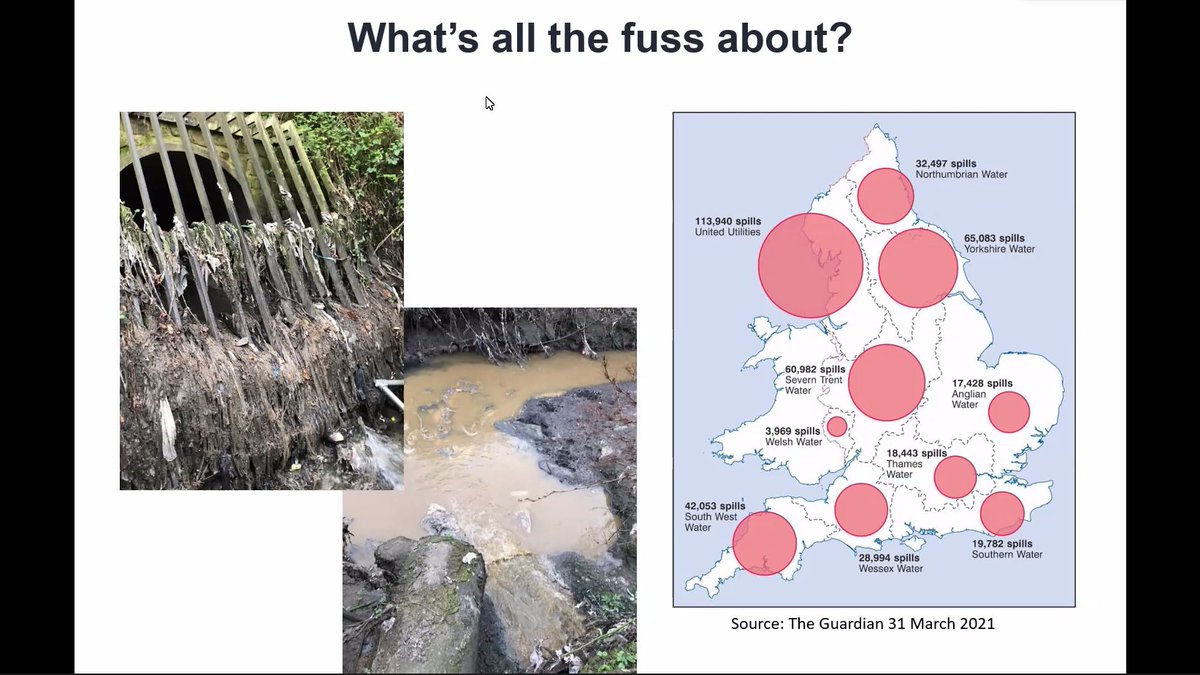
Bought myself a ticket to this 🎟 as a Christmas present to myself. Tucking in to the first mince pie of the season 🥧 & looking forward to learning more about the history of the tradition of writing letters to Father Christmas 🎅🏻 #FairyTaleTuesday
https://twitter.com/folkloresociety/status/1595792958741254144
Dr @CeriHoulbrook discusses how ubiquitous the "Letters to Santa" ritual has become in today's society, given the example of her own son drafting letters at a local aquarium, at nursery and around their own kitchen table #FairyTaleTuesday
Houlbrook says we rarely consider why we "engage with correspondence with a seasonally-specific supernatural entity", but she notes there is, in fact, a rich cultural & social history to such letters #FairyTaleTuesday
Turning to the history of Father Christmas, Houlbrook says that the history of "Father Christmas" in 🇬🇧 goes back to the 17th Century, where he has a history of gift giving. He reemerged in the Victorian era where he increasingly is more associated with children #FairyTaleTuesday
Houlbrook notes that this coincided in the 🇺🇸 where "Sinterklaas" arrived with Dutch immigrants & became part of the mainstream culture as "Santa Claus" for Christmas time #FairyTaleTuesday
Eventually, Houlbrook notes, the 🇺🇸 & 🇬🇧 interpretations of Father Christmas & Santa Claus became intertwined, with the two names being used interchangeably #FairyTaleTuesday
Turning to Santa's address, Houlbrook notes that Santa's address has never been officially divulged, however he has historically always been associated with the Northern regions #FairyTaleTuesday
Houlbrook notes that his association with the North Pole comes from the late 19th Century, when exploration of the Arctic began in earnest & so the region still had some mythical appeal #FairyTaleTuesday
Turning to the custom of writing letters to Santa, Houlbrook notes that the custom "started at different times for different parts of Europe". In early 20th century, letters were usually left up chimneys, but increasingly by mail #FairyTaleTuesday
Houlbrook notes that letters in 🇬🇧 & 🇺🇸 often end up in a Dead Letter Office of the national postal services. Houlbrook says that the letters offer insights into retail trends, but also the hopes & dreams of children across the ages #FairyTaleTuesday
In fact, Houlbrook notes that many letters were read by charities, who would often provide responses and support for those children most in need #FairyTaleTuesday
Turning to her research, Houlbrook welcomes the fact that letters are increasingly becoming archived by postal services, local authorities and other authorities #FairyTaleTuesday 
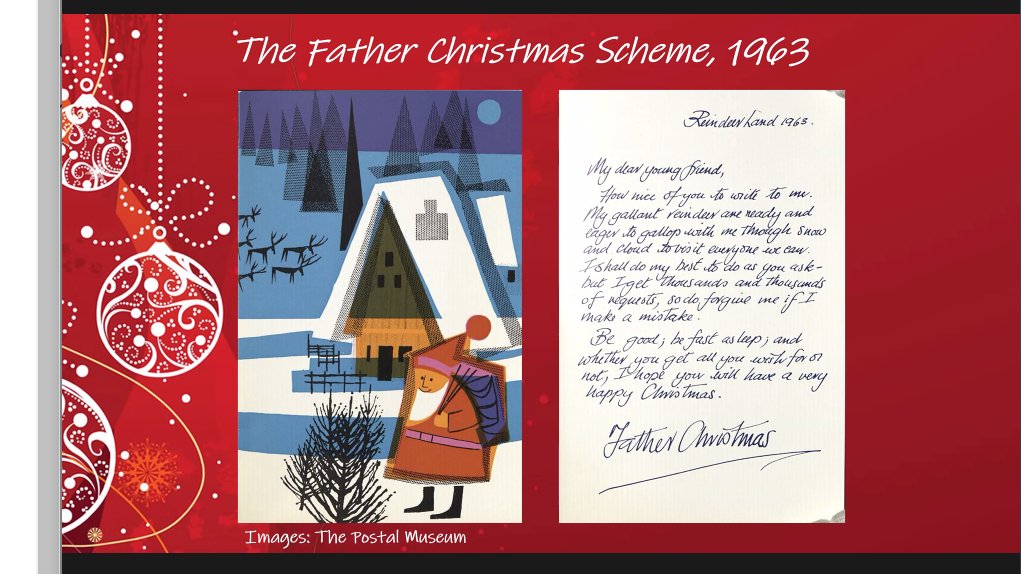
Turning to her research, Houlbrook welcomes the fact that letters are increasingly becoming archived by postal services, local authorities and other authorities #FairyTaleTuesday
Houlbrook says that these letters can offer fascinating social histories. Looking at paper, Houlbrook notes that historically, letters were written on scrap paper, but from 1987, the rollout of specialised stationery became more popular #FairyTaleTuesday 



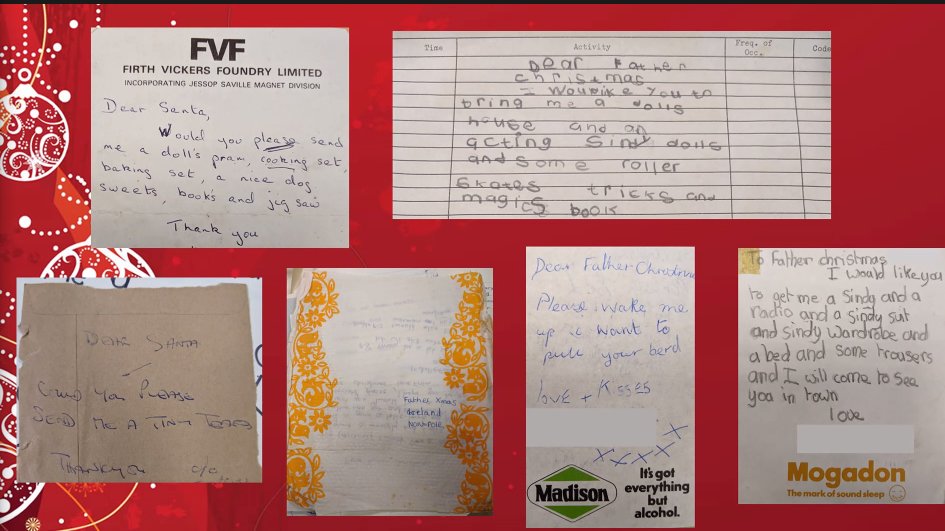


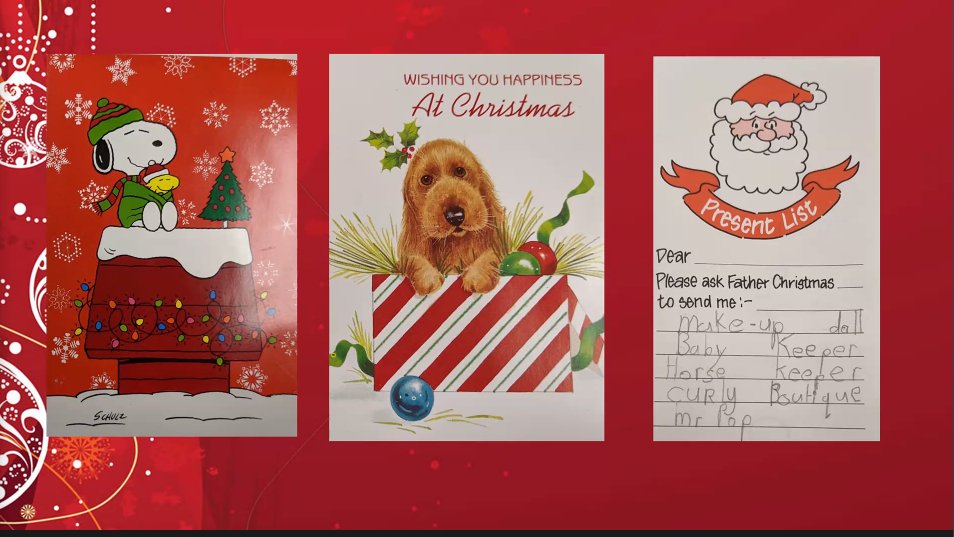
Looking at who writes the letters, Houlbrook notes that letters are often used by adults to help children with spelling & letter formation, with adults either writing the letters for the children, or helping them with SPAG etc #FairyTaleTuesday
Houlbrook also notes that letters tend to be written by younger children, many older children, especially teenagers still wrote to Santa. However, Houlbrook notes these tend to be asking for relationships or outlandish gifts & tend to be "jokey" in nature #FairyTaleTuesday
Turning to other trends, Houlbrook notes that, with more modern letters, we have seen an increase in adornments to the letters, with people offering drawings of Santa Claus & his reindeer #FairyTaleTuesday
On reindeer, Houlbrook also notes that reindeer feature increasingly throughout the 20th century, with #Rudolph in particular featuring increasingly regularly in the late 20th century #FairyTaleTuesday
On Santa's other "employees", Houlbrook also notes that fairies are increasingly mentioned, suggesting a change in opinions of fairies from malevolent tricksters of the 19th century to benevolent figures in 20th century #FairyTaleTuesday
Despite the Christian routes of Christmas, Houlbrook notes that very few letters in her archives actually mention Christianity, although some children do ask for Bibles #FairyTaleTuesday
The main focus, Houlbrook says gifts are the main focus of people's letters. She also notes that increasingly letters will request brand names, include retail prices, or references to catalogue page numbers to ensure the "right" gift is given #FairyTaleTuesday
Turning to letters from 1987, Houlbrook notes that we are increasingly seeing 🇺🇸 starting to overtake from 🇬🇧 brands (e.g. "Barbie" instead of "Sindy"). The 1980s also saw the emergence of the "Tween", so growing requests for jewellery and make-up #FairyTaleTuesday 

Turning to letters from 1987, Houlbrook notes that we are increasingly seeing 🇺🇸 starting to overtake from 🇬🇧 brands (e.g. "Barbie" instead of "Sindy"). The 1980s also saw the emergence of the "Tween", so growing requests for jewellery and make-up #FairyTaleTuesday
Looking at which traditions of Sinterklaas still survive in 20th Century, Houlbrook notes the idea of presents only being for "good" children still persists - with children asserting their own "goodness" as well as telling Santa about bad children #FairyTaleTuesday
Houlbrook also notes the belief of Santa Claus comes down the chimney has also prevailed. Houlbrook notes 1980s saw homes transition from open fires to gas fires, with more children offering alternative access arrangements (eg through the front door) #FairyTaleTuesday
Houlbrook also notes that the custom of "votive offerings" still prevails. With children leaving a wide range of consumables out for Santa (and, increasingly, his reindeer) in order to curry his favour, with fireplaces & kitchen tables acting as "altars" #FairyTaleTuesday 


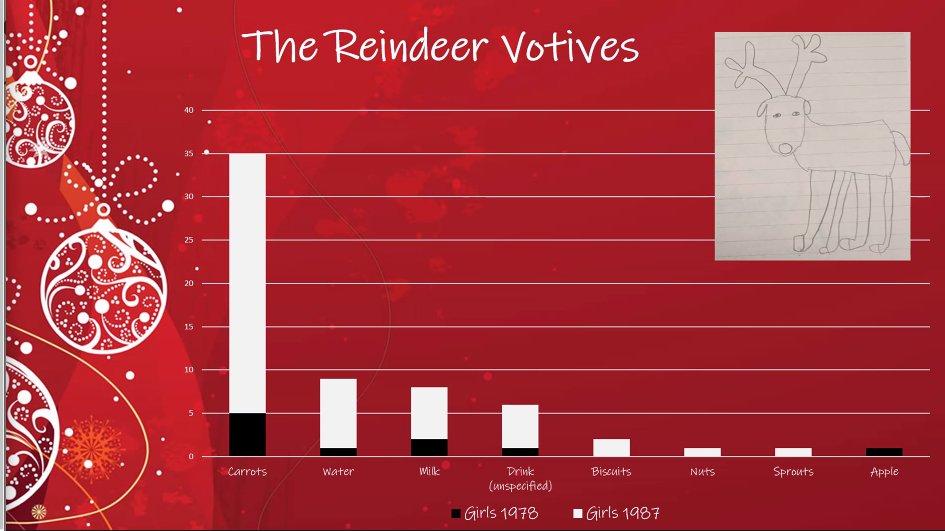
Houlbrook concludes saying that her research into children's letters allows her to keep track of material trends and evolving technologies, changing domestic spaces, gender stereotypes & familial relationships #FairyTaleTuesday
However, increasingly, Houlbrook finds that children speak less and less about news events or political developments. Instead, she says the focus is on Christmas and that is what they can focus on #FairyTaleTuesday
So what can we learn from the letters/ Houlbrook says that the letters can show us that significant numbers of children believe in Santa Claus, engage in correspondence with him & offer him votives in exchange for gifts #FairyTaleTuesday
While this may be obvious, Houlbrook says these offer windows into the "perennial vitality" of the Santa Claus myth, with children continuing to believe in the Santa Claus and engage in these rituals year after year #FairyTaleTuesday 
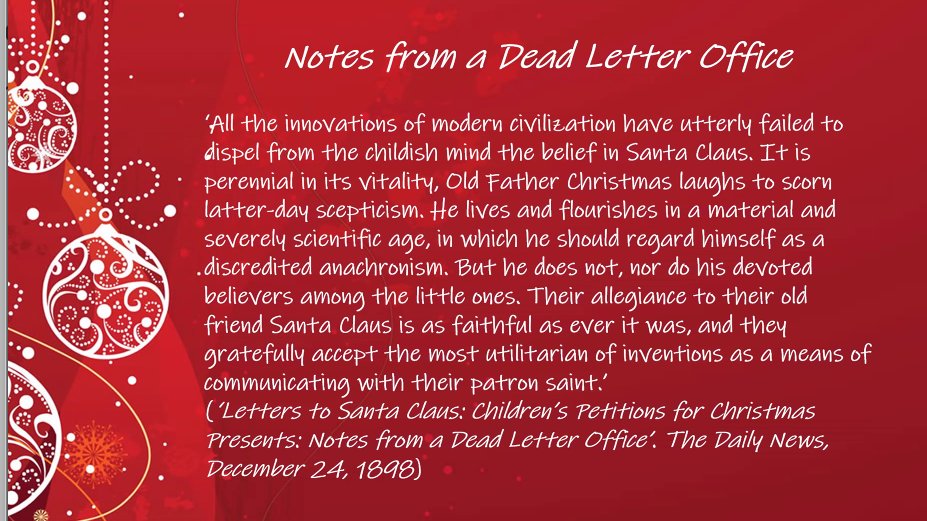
Really interesting presentation into the history of writing letters to Santa & what these letters can show us about changing social attitudes & trends. Thanks to @CeriHoulbrook for your presentation and to @FolkloreSociety for hosting! #FairyTaleTuesday
• • •
Missing some Tweet in this thread? You can try to
force a refresh


